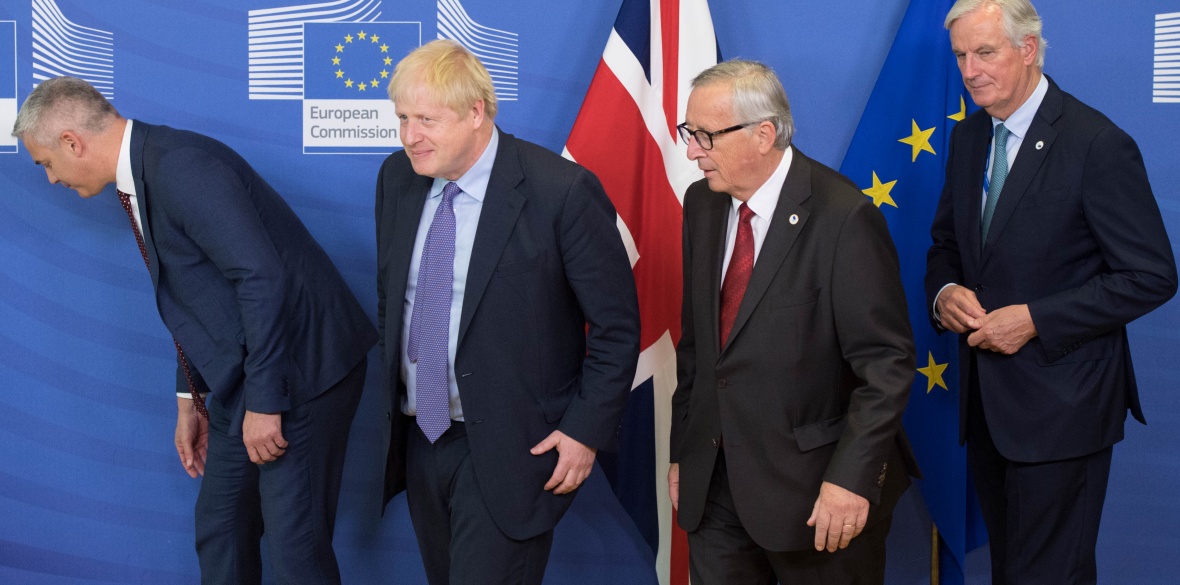This is the last article you can read this month
You can read more article this month
You can read more articles this month
Sorry your limit is up for this month
Reset on:
Please help support the Morning Star by subscribing here
OVER the last week I have spent some time watching the BBC World Service. Naturally, much of the coverage focused on events in the House of Commons where so-called “Super Saturday” failed to live up to the hype surrounding it.
Like a final-day league decider there was extensive frenzied, pre-match hype in the media. Players from both sides were interviewed speculating on the outcome, supporters gave their completely over-the-top biased opinions, while bedecked in their team colours. In the centre the referee strutted and preened milking the moment for all he could.
As the game got under way, Barclay, the blue team centre forward, attempted an early strike but the red team generalissimo Starmer effortlessly demolished each attack with a skilled, elegant and precise performance.
As the pace hotted up, in stepped the forgotten and long-banished to the third team figure of Sir Oliver Letwin (the Seb Rosenthal or Raphael Sheidt of the House of Commons (there’s cultural reference for Old Firm fans of a certain vintage) — to blooter the ball into his own team’s net.
House of Commons - 1 Johnson - 0 completing a dire opening run for the blue team’s new head coach.
As the parliamentary equivalent of the “Anusol pile cream” fourth division title trophy was ripped from the grasp of Captain “Mainwearing” Johnson, supporters sloped off, only to return a few days later when Johnson broke his dismal losing streak. Celebrations were cut short as the open-topped bus tour was cancelled through lack of time.
Crappy footballing metaphor over, I promise. As this alleged “drama” unfolded at Westminster, back in the real world, the BBC World News showed in countries across the globe crises playing out in violent uprisings on the streets from Europe to Asia, Latin America, the Middle East, Africa and beyond.
These events put the Westminster parlour games into perspective. While I don’t decry the potential enormity of a Brexit balls-up, it is frustrating to see it kick off the news agenda the humanitarian crisis in Yemen, the loss of life in Kurdistan or the environmental disaster at the polar ice caps.
In just one week we have seen:
In Lebanon the government’s attempts to introduce a 20 cent per day tax on WhatsApp and other calls resulted in mass public protest. These taxation issues have became a conduit for anti-government resentment.
In Spain the Supreme Court’s jailing of Catalan nationalists for arranging the unlawful Catalan independence referendum sparked huge demonstrations and violence on the streets of Barcelona and other Catalan cities.
In Chile violence erupted in response to the government’s plan to increase fares on the Metro — like in Lebanon, this was a proxy for protest about other issues, most notably growing inequality and the rising cost of living for workers.
In Kurdistan Turkish air strikes attacked Kurdish forces who were previously supported by the US for their role in defeating Isis — now they stand abandoned by Trump and attacked by Erdogan.
In Bolivia Evo Morales was re-elected for the third time and, just as we have seen in Venezuela, the opposition contests the result, claiming fraud, provoking violent unrest.
In Israel Benjamin Netanyahu’s attempt to form a coalition government failed. In Canada Justin Trudeau lost the popular vote but won a second term and in Hong Kong and Kashmir long-standing political tensions remain, in Essex we see 39 desperate people dying in the back of lorry trying to enter Britain. And finally in the US the Trump shitshow carries on regardless.
So in another week of Brexit “excitement” — or tedium, take your pick — major social economic and political events are occurring all across the globe. Unrest, conflict and change are occurring, all of which will in some way affect our country, our community or our lives.
Let us not be insular and ignore these events. As global citizens and members of the human race we have to care about these issues too.
Neil Findlay is Labour MSP for Lothian.










